This article will explore the importance of adequate Water, Sanitation, and Hygiene (WASH) facilities and discuss how they empower individuals worldwide. We will also cover essential aspects of menstrual hygiene, such as inclusivity and gender equality.
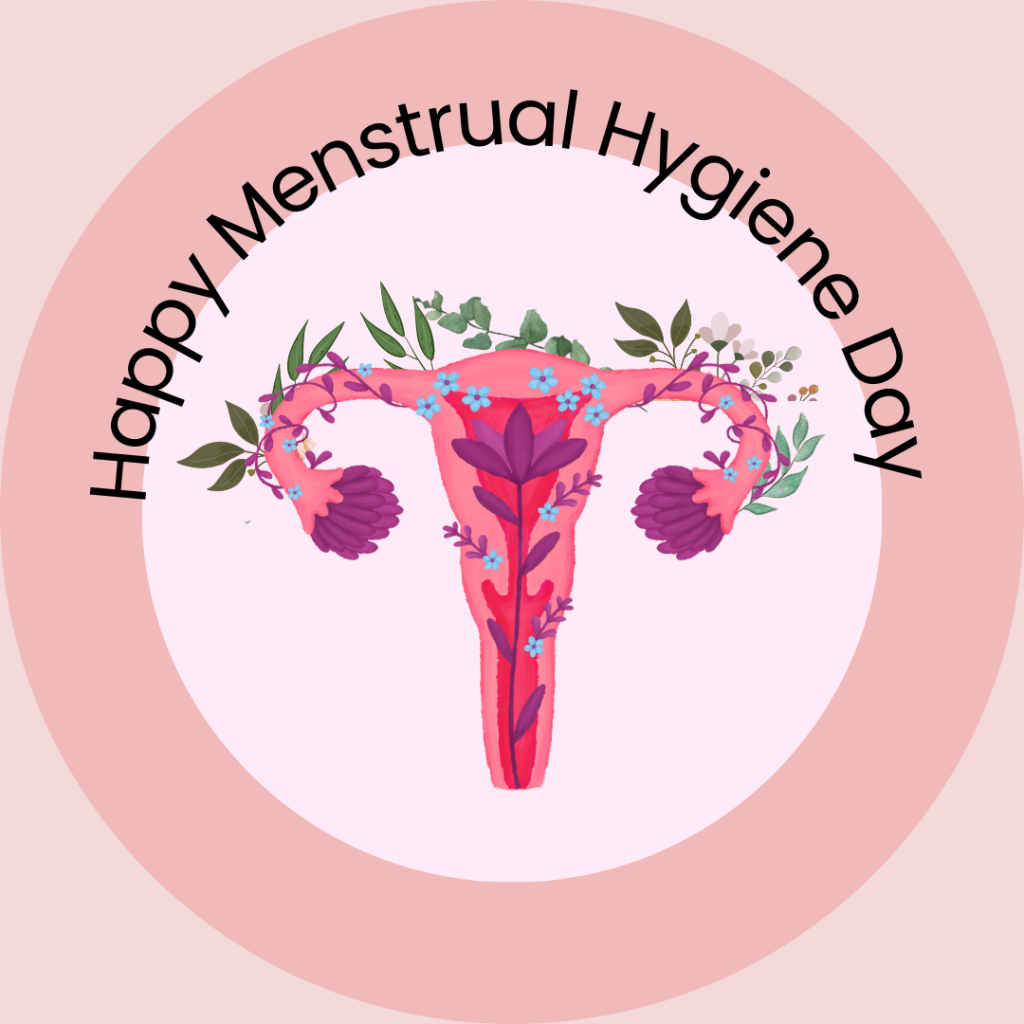
Empowerment and Inclusivity
Celebrating World Menstrual Hygiene Day can help raise awareness and drive change for better menstrual hygiene management. This change can have a lasting impact on gender equality, health, and education. Let’s dive into the different ways we can foster empowerment and inclusivity.
a. Addressing Gender Inequality Through Menstrual Hygiene Management
Also read: Empowering Women on World Menstrual Hygiene Day: Awareness, Education, and Breaking Taboo.
Achieving gender equality requires addressing the unique needs of menstruators. Adequate menstrual hygiene management is essential for ensuring access to education, work, and healthcare. Investing in WASH facilities can create an environment where menstruators can manage their periods with dignity and without discrimination.
b. Involving Men and Boys in Menstrual Hygiene Conversations
Involving men and boys in menstrual hygiene conversations is essential for breaking stigmas and promoting understanding. By educating them on menstruation and encouraging open discussions, we can foster a supportive environment for everyone.
c. Supporting Transgender and Non-Binary Individuals’ Menstrual Needs
Transgender and non-binary individuals often face unique challenges and barriers when it comes to managing their menstrual needs. To create a more inclusive society, it’s crucial to consider their specific needs and provide tailored support and resources.
d. Menstrual Hygiene in the Workplace and Public Spaces
Ensuring access to adequate menstrual hygiene facilities in workplaces and public spaces is essential for promoting gender equality and social inclusion. This includes providing clean and private spaces, sanitary products, and waste disposal facilities.
Also read: Incorporating Menstrual Education in School Curriculums
Menstrual Hygiene: Beyond the Basics
Now that we’ve explored the importance of empowerment and inclusivity, let’s delve into more specific aspects of menstrual hygiene.
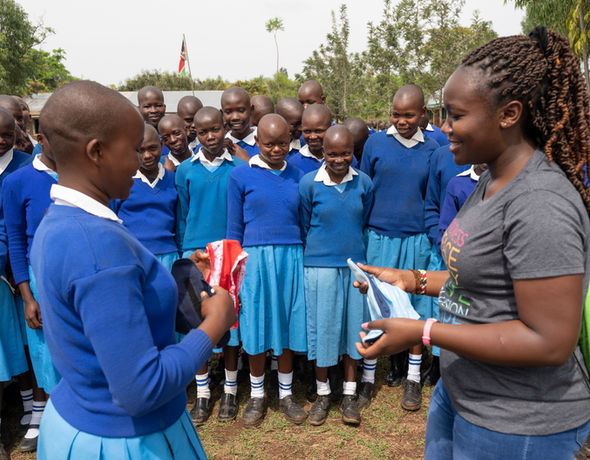
1. Education and Awareness
Educating individuals about menstrual health and hygiene is crucial for breaking taboos and ensuring proper management. This includes providing information on the menstrual cycle, available products, and proper hygiene practices.
2. Access to Sanitary Products
Access to affordable and quality sanitary products is a fundamental right for all menstruators. By supporting initiatives that provide these products, we can help ensure everyone can manage their periods with dignity.
3. Safe Disposal of Menstrual Waste
Proper disposal of menstrual waste is essential for protecting the environment and public health. This includes providing appropriate waste disposal facilities and promoting eco-friendly alternatives.
4. Advocating for Policy Change
Advocacy for policy change can help ensure that menstrual hygiene is prioritized at the governmental level. This includes pushing for legislation that supports access to WASH facilities, sanitary products, and education.
Also read: Breaking Stigma: Discover the World of Menstrual Hygiene
Maji na Ufanisi: Making a Difference in Kenya.
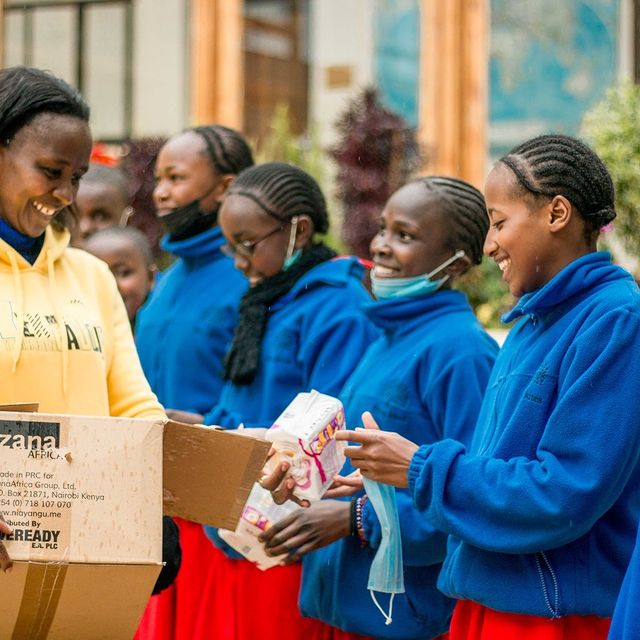
In this blog section, we would like to highlight the incredible work of Maji na Ufanisi, a Kenyan-based NGO committed to improving menstrual hygiene and breaking the stigma surrounding menstruation.
Through their efforts, they are empowering school-going girls and creating lasting change in their communities.
Distributing Free Reusable Pads to Adolescent Girls
One of Maji na Ufanisi’s primary initiatives is the distribution of free reusable pads to adolescent girls in Kenyan schools.
By providing these essential sanitary products, they are helping to keep girls in school and avoid the shame and embarrassment that can arise from inadequate menstrual hygiene.
This initiative supports the girls’ education and contributes to their overall well-being and self-esteem.
Education and Awareness to Defeat Stigma
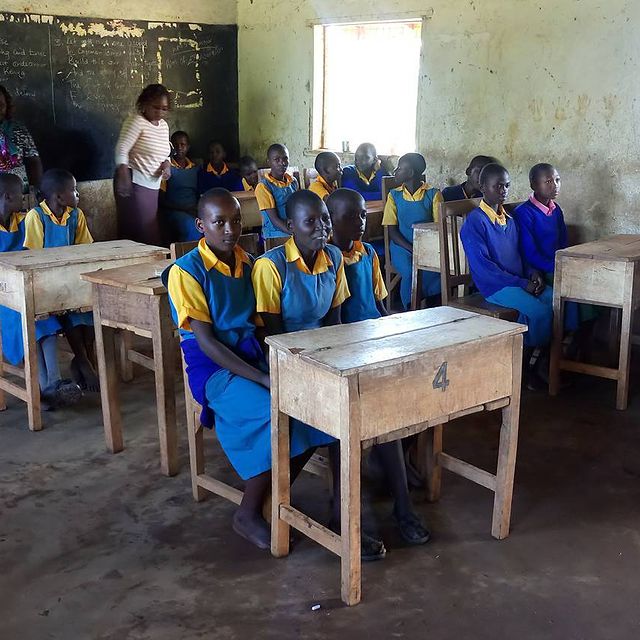
Maji na Ufanisi understands that providing sanitary products is just one part of the solution.
The Kenyan-based NGO also focuses on education and awareness to create lasting change and break the stigma surrounding menstruation.
The NGO conducts workshops and seminars in schools and communities to educate girls and boys about menstruation, proper hygiene practices, and the importance of gender equality. By doing so, they are fostering an environment of understanding and support that will ultimately help to defeat the stigma associated with menstruation.
Also read: Government Policies and Initiatives for Menstrual Hygiene, Health, and Well-being
Making a Difference, One Girl at a Time
The work of Maji na Ufanisi is making a significant impact on the lives of adolescent girls in Kenya. Through their distribution of reusable pads and their efforts to educate and raise awareness, they are helping to create a future where every girl can attend school without fear or shame related to menstruation.
Empowering these girls contributes to a more equal and just society, one girl at a time.
Conclusion
As we celebrate World Menstrual Hygiene Day, let us remember the importance of adequate WASH facilities and their role in empowering and supporting individuals worldwide.
By addressing gender inequality, fostering inclusivity, and promoting education, we can create a world where everyone can manage their periods with dignity and without discrimination. Together, we can make a difference.
By learning from organizations like Maji na Ufanisi, we can all take steps to improve menstrual hygiene and promote gender equality in our communities.
As we celebrate World Menstrual Hygiene Day, let us remember the incredible work of NGOs like Maji na Ufanisi and be inspired to make a difference in our way.
FAQs
What is World Menstrual Hygiene Day?
- World Menstrual Hygiene Day is an annual event on May 28th that aims to raise awareness about the importance of menstrual hygiene and promote the rights of menstruators worldwide.
Why is menstrual hygiene important?
- Menstrual hygiene is essential for ensuring menstruators’ health, well-being, and dignity. It also plays a crucial role in promoting gender equality, access to education, and economic opportunities.
How can men and boys be involved in menstrual hygiene conversations?
- Men and boys can be involved by learning about menstruation, encouraging open discussions, and supporting policies and initiatives that promote menstrual hygiene and gender equality.
What can be done to support transgender and non-binary individuals’ menstrual needs?
- To support transgender and non-binary individuals, we must consider their needs, provide tailored resources and education, and create inclusive environments in workplaces, schools, and public spaces.
How can I contribute to promoting menstrual hygiene?
- You can contribute by raising awareness, supporting organizations that work on menstrual hygiene, advocating for policy change, and educating others about the importance of menstrual hygiene and gender equality.
By recognizing and celebrating World Menstrual Hygiene Day, we can collectively work towards a more inclusive and equal society where everyone’s menstrual needs are acknowledged and supported.

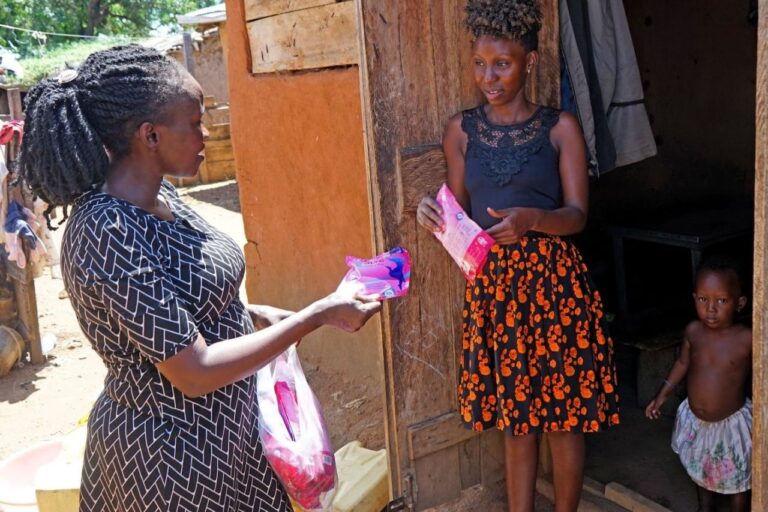

It’s quite very informative, let’s support our girls for quality education and life, am a fighter of menstrual stigma and discrimination
Thank you for the feedback